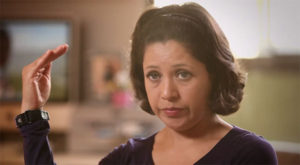Even before Mariko was able to tell Kasimir what she really needed to recover, the fact that he just listened as she shared her feelings and experiences, without judging or trying to fix it, was extremely helpful.
Transcript
K: Actually I think I was probably, in the beginning, I wasn’t thinking that I, there was a lot for me to do and this was just something that she was going to get through and it was just going to go away.
So maybe later on, when she started to seek out more support and through the sessions at the Society, she started to get help that way and sort of I think she got the, the tools that started to get the tools and , and resources to, to figure out how to get through it; then, then sort of started to come out of the darkness, if that’s what it was, of, of the depression: then I think, then maybe I felt like or I started to be, to get a better sense of how I could offer support. And I think she came home from those sessions and shared with me what happened there and then I started to get some ideas about what, what my role might be and how I could help. So I think that that’s probably when my contribution started.
M: Yeah I agree with that because I didn’t realize until he mentioned it but I could talk to him complaining and all that stuff without being heard. I think I talked earlier that I didn’t have anyone else but the Society but now I realize that I was still talking to him in a way that I was still in the dark moments and didn’t know what I’m doing and what I’m talking about. But that’s because he didn’t really say anything, he was a listener. One really good one and he didn’t really give me back any his emotional feedback, that was, I think that was really big support. That I didn’t even realize that but, yeah.
